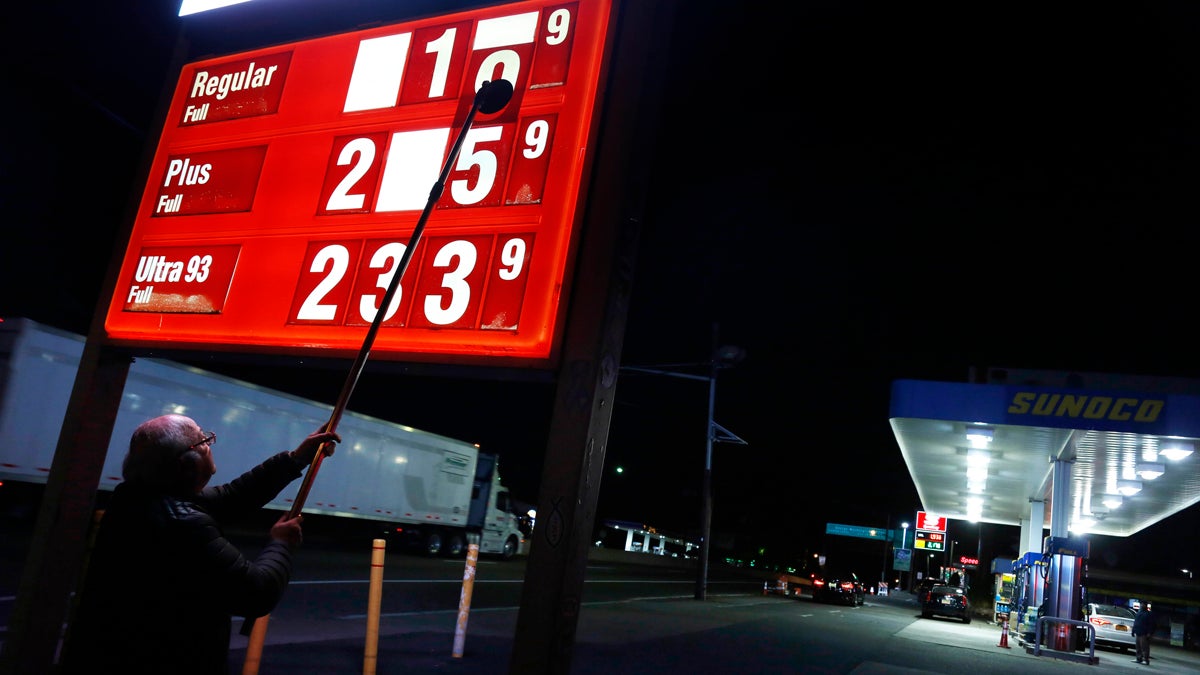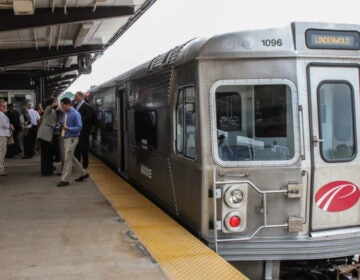With higher levy in place, N.J. voters to decide if gas tax funds only transportation projects

Leon Balagula changes the price for the gasoline at his Sunoco station in the early Tuesday morning in Fort Lee
Now that New Jersey has increased its gas tax by 23 cents a gallon to raise money for transportation improvements, voters will decide next week on whether to constitutionally mandate that all gas tax revenue is used for that purpose.
Republican Assemblyman Erik Peterson said he opposes the constitutional amendment because it would allow the state to borrow $12 billion over eight years for transportation projects, adding to the state’s debt.
“It just puts New Jersey further behind and makes us even financially more in the hole than we currently are, which I think is bad public policy,” said Peterson, R-Hunterdon.
But if voters reject the amendment, the state won’t be able to do a transportation program that borrows money, said Assembly Transportation Committee chairman John Wisniewski, D-Middlesex.
“The 23 cents a gallon that is collected, about half of that will be used from day one to pay debt service on bonds that have already been issued,” he said. “So there would only be about $500 million a year available for a new program.”
At a service station in Trenton drivers who were paying higher prices because of the gas tax hike said they support the constitutional amendment.
“We don’t know where the money is going if they borrow it for other situations, nothing is going to get done that should be done,” said one.
“I think it’s a great idea,” said another. “Maybe then it will increase the amount of public transportation, decrease the need for people to use their own cars, decrease emissions.”
“If it went for road renovations and things like that, that would overall help everybody,” said a third. “It would help traffic. It would help maintenance on the roads.”
If the measure is approved, Wisniewski said, the $1.2 billion more a year from the gas tax would be restricted to transportation projects and not available for any other state expenses.
WHYY is your source for fact-based, in-depth journalism and information. As a nonprofit organization, we rely on financial support from readers like you. Please give today.




